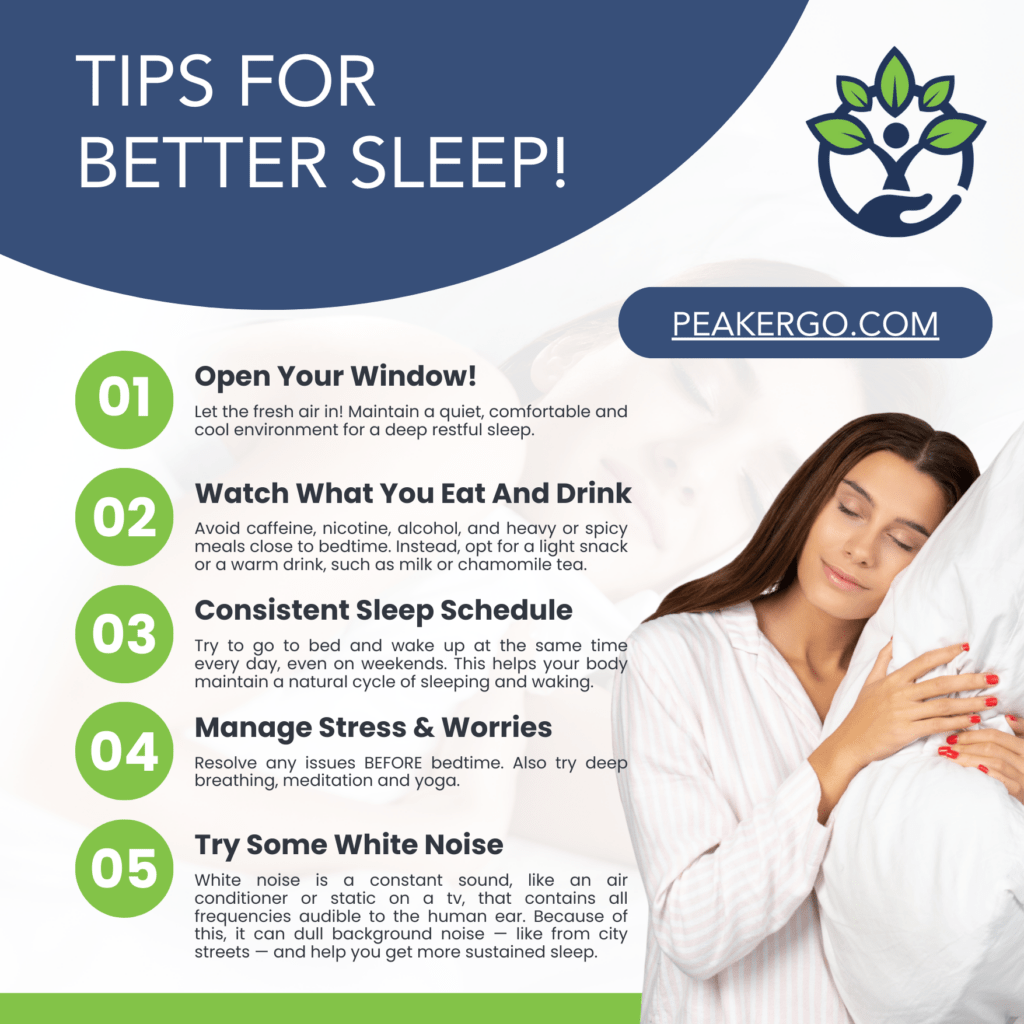Establish a consistent sleep schedule. Go to bed and wake up around the same time every day, even on weekends, to regulate your body’s natural sleep-wake cycle. Aim for 7-9 hours of sleep.
Create a relaxing bedtime routine. This could include a warm bath, reading a book, or listening to calming music. Avoid screen time for at least an hour before bed, as the blue light emitted from electronic devices can interfere with sleep.
Optimize Your Sleep Environment
Make sure your bedroom is dark, quiet, and cool. Use blackout curtains or an eye mask to block out light, earplugs to reduce noise, and a comfortable mattress and pillows. Maintain a room temperature between 60-67 degrees Fahrenheit (15-19 degrees Celsius).
Get regular exercise. Physical activity can improve sleep quality, but avoid intense workouts close to bedtime. Aim for at least 30 minutes of moderate-intensity exercise most days of the week.
Limit caffeine and alcohol intake, especially in the evening. Both can disrupt sleep patterns. Consume your last caffeinated beverage at least six hours before bed.
Expose yourself to sunlight during the day. Sunlight helps regulate your circadian rhythm, making it easier to fall asleep at night. Aim for at least 15 minutes of sunlight exposure daily.
Consider a sleep diary. Track your sleep patterns for a few weeks to identify any potential problems or triggers affecting your sleep.
Manage stress effectively. Stress and anxiety can significantly impact sleep. Practice relaxation techniques such as deep breathing exercises or meditation before bed.
If sleep problems persist, consult a healthcare professional. They can help determine the underlying cause of your sleep difficulties and recommend appropriate treatment options.



